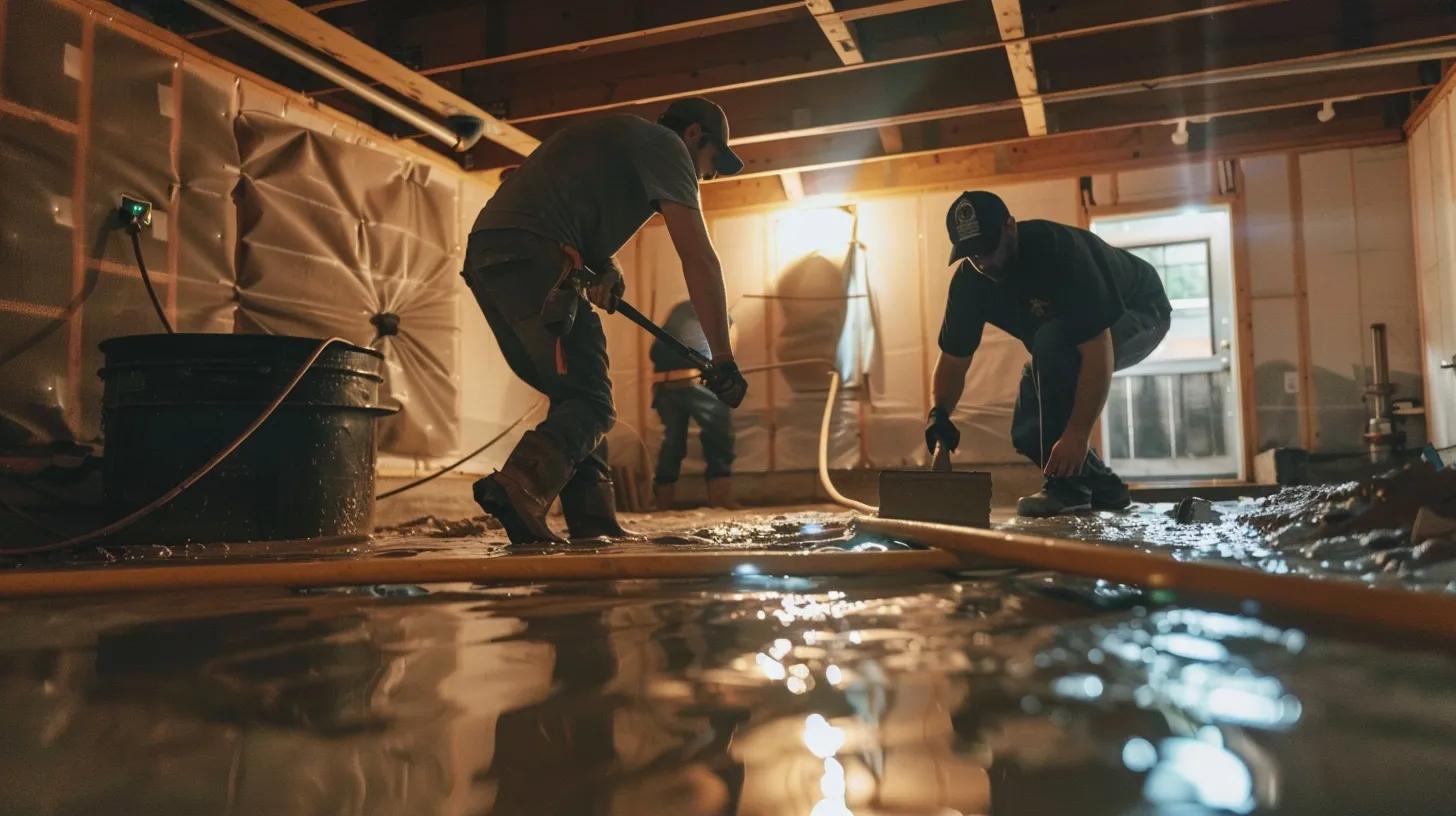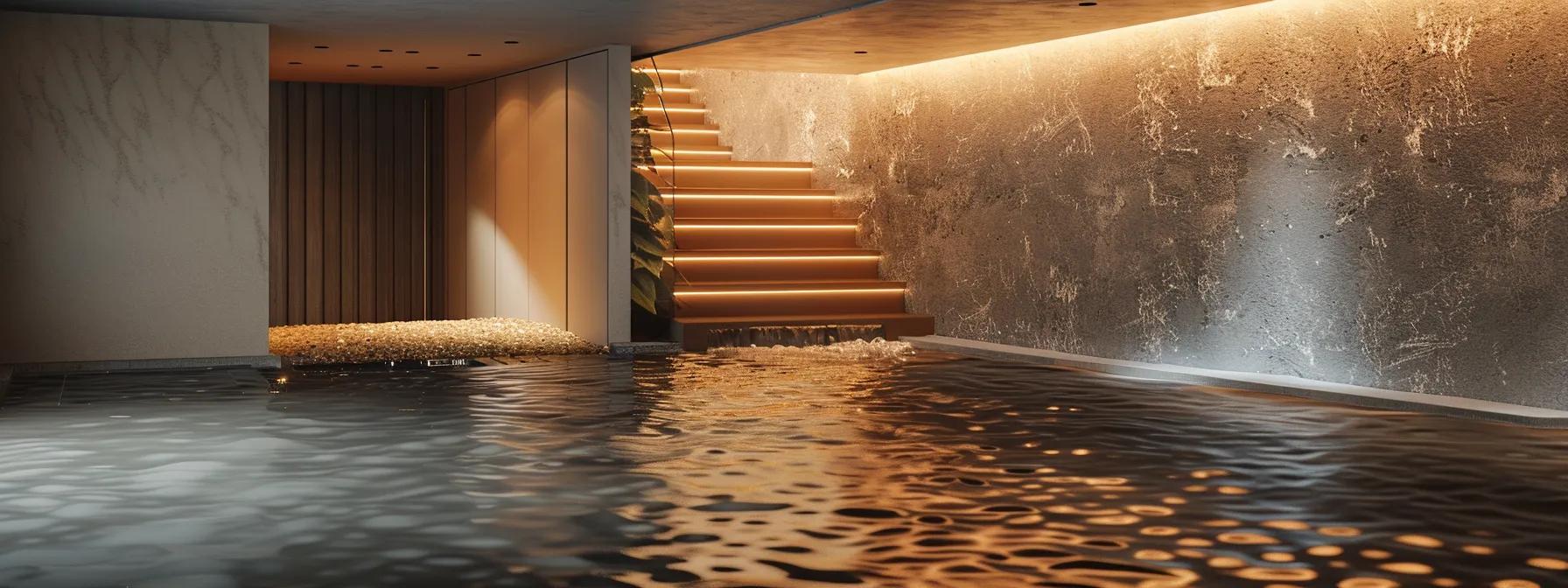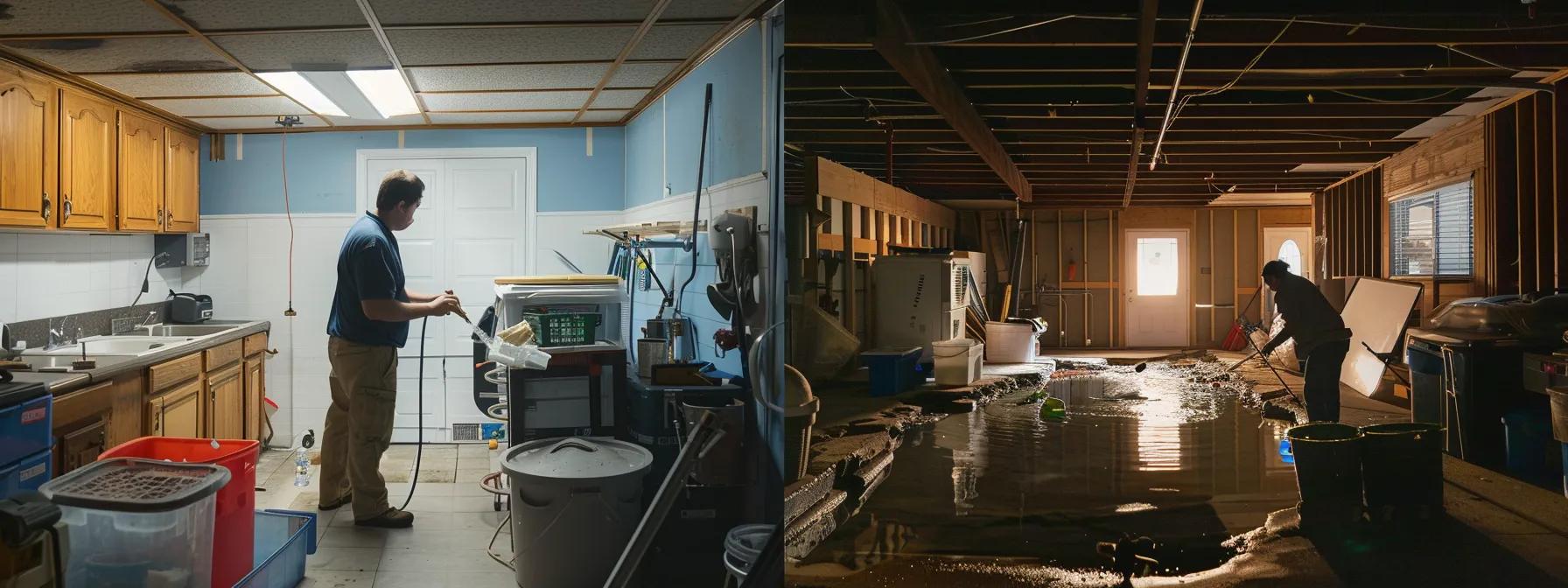Basement Waterproofing Tips Every Homeowner Needs
As a dedicated team at Thor Basement Waterproofing, we understand that a damp or flooded basement can create many problems for homeowners and commercial property owners alike. Water damage in the basement not only compromises your home’s structural integrity but also creates an unhealthy environment that can lead to mold growth. In this article, we explore the causes of basement water damage and outline effective waterproofing methods that protect your property. We compare DIY options with professional services, review ways to detect early signs of damage, discuss the best waterproofing materials, and share tips for choosing a reliable contractor. By understanding these key concerns and solutions, we empower you to make informed decisions so your basement remains dry, healthy, and structurally sound.
Each section in this guide provides practical advice and actionable steps that we, as experienced basement waterproofing Rochester professionals, have seen work effectively. We include detailed explanations, comparison tables, and comprehensive lists to help you navigate the process. Let’s dive into the common causes of basement water damage and the strategies that can stop water in its tracks.
What Are the Common Causes of Basement Water Damage?
Basement water damage generally stems from a few common factors that, when combined, put your home at risk. Key causes include hydrostatic pressure, foundation cracks, and poor drainage.

How Does Hydrostatic Pressure Affect Your Basement?
Hydrostatic pressure builds when water accumulates around your home’s foundation, pressing against the walls and often forcing water through small pores or gaps. Heavy rains and high water tables can dramatically increase this pressure, pushing water into your basement and damaging concrete block or drywall.
Why Do Foundation Cracks Lead to Water Leaks?
Foundation cracks, caused by settling issues, temperature fluctuations, or aging materials, serve as direct channels for water infiltration. Even small cracks can allow water to enter, increasing humidity and promoting mold growth. Left unaddressed, these cracks not only weaken your foundation but also result in high repair costs over time. Professional repair methods such as epoxy injections or crack sealing are essential for lasting protection.
How Can Poor Drainage Cause Basement Flooding?
Clogged or improperly installed gutters, downspouts, and drainage systems prevent water from being directed away from the foundation. Water that collects near the foundation greatly increases the risk of seepage into your basement. Additionally, landscaping that slopes toward your home compounds drainage problems. Improving grading and ensuring drainage systems remain clear are critical steps to reduce flooding risk.
What Are the Most Effective Interior Waterproofing Methods?

Interior waterproofing focuses on managing water that has already infiltrated your basement and stopping it from causing further harm.
How Do Sump Pumps Protect Your Basement From Flooding?
A sump pump removes accumulated water from a sump pit. When water levels rise, it automatically discharges water away from your home, thereby preventing flooding. We have seen that a well-maintained sump pump system is one of the most effective defenses during heavy rains or snowmelt, protecting walls and flooring from water damage.
What Types of Interior Drainage Systems Are Available?
Interior drainage systems, including french drains, channel drains, and perimeter drains, capture water along the lower basement walls and direct it into a sump pit. For instance, an interior french drain uses a perforated pipe in a gravel-filled trench to collect and channel water away. Properly installed systems can significantly reduce humidity and hinder mold growth.
How Can Moisture Control and Dehumidification Improve Basement Conditions?
Maintaining a dry basement is key for structural health. High moisture can lead to condensation, mold growth, and even decay. Installing dehumidifiers reduces ambient moisture, discouraging water infiltration and mold proliferation. Many clients have found that lowering humidity from above 60% to around 40% eliminates damp smells and condensation on walls and pipes. Using dehumidifiers alongside other moisture management solutions ensures comprehensive interior waterproofing.
Which Exterior Waterproofing Techniques Best Protect Your Basement?
Exterior basement waterproofing creates a barrier to stop water from contacting your foundation at all. Techniques include using protective coatings, installing proper drainage systems, and ensuring correct site grading.
How Do Foundation Waterproofing Coatings Work?
Foundation coatings are specially formulated to create an impermeable barrier on the exterior walls. After cleaning the surface, multiple coats of sealant are applied and allowed to cure, forming a durable shield against rain and groundwater. At Thor Basement Waterproofing, we use high-quality coatings that are tested for severe weather, ensuring that your basement stays dry.
What Is the Role of Excavation in Exterior Waterproofing?
Excavation involves digging around the foundation to expose exterior walls so that cracks can be repaired and waterproof membranes applied. This method also allows for the installation of external drainage systems and improvement of grading. Although labor-intensive, excavation addresses the root cause of water exposure directly, offering a more permanent solution.
How Do Exterior Drainage Systems Like French Drains Prevent Water Damage?
Exterior french drains consist of a perforated pipe buried in a gravel-filled trench around your foundation. This system collects groundwater and diverts it away from the house before it builds up hydrostatic pressure. By directing water to a designated discharge area, french drains effectively reduce the risk of seepage and long-term damage during heavy rains.
When Should Homeowners Choose DIY Basement Waterproofing vs. Professional Services?

When it comes to basement waterproofing Rochester, homeowners often face the dilemma of choosing between DIY approaches and enlisting the help of a professional basement waterproofing company. Our team at Thor Basement Waterproofing understands that this choice largely hinges on the severity of the water issues at hand and your own skill level in executing repairs. For minor leaks and moisture concerns, tackling the project yourself might be feasible, especially with the right tools and resources. However, if the problem is extensive or the conditions are complicated, hiring a professional service ensures not only effective solutions but also peace of mind, as experts have the experience and equipment necessary to address underlying issues that may not be easily visible, including those in the crawl space. Ultimately, weighing your options carefully will lead to the best outcome for your home.
What Are the Step-by-Step DIY Basement Waterproofing Tips?
For moderate water issues, homeowners can take several steps:
- Inspect and repair cracks: Use high-quality epoxy or polyurethane sealants for minor wall and floor cracks.
- Clear gutters and downspouts: Keep drainage components free of debris so water flows away from the foundation.
- Install a dehumidifier: Reducing moisture can help prevent mold.
- Apply waterproof coatings: Use interior sealers on concrete to create a moisture barrier.
- Improve interior drainage: Temporary floor drains or plastic barriers can help manage water in the short term.
While these DIY steps may help for minor issues, significant or ongoing problems typically require professional intervention.
How Do You Know When to Hire a Professional Waterproofing Contractor?
When it comes to deciding whether to hire a professional waterproofing contractor, our team emphasizes certain key indicators that you should not overlook. If you’re experiencing persistent water intrusion despite your best DIY efforts or noticing structural damage coupled with mold growth, these are clear signs that it’s time to reach out for help. Additionally, if water continues to pool near your foundation despite following proper drainage practices, this could signify a much larger issue. For our peace of mind, having a warranty on the work performed is invaluable, as it ensures long-term protection against future problems. Professional contractors not only bring specialized equipment to the table but also have the expertise to deliver long-lasting and reliable solutions. For effective basement waterproofing services, especially in areas like basement waterproofing Rochester, seeking the assistance of professionals ensures that the necessary measures are taken to safeguard your home effectively.
What Is the Typical Cost Breakdown for Basement Waterproofing?
Cost varies based on damage extent, chosen methods, and the complexity of your home’s structure. Interior solutions like sump pump installation and drainage systems may range from a few hundred to several thousand dollars. Exterior methods, especially those involving excavation and membranes, tend to be more expensive due to labor and materials. Generally, homeowners may spend between $3,000 and $15,000 for comprehensive waterproofing. Professionals offer detailed assessments and transparent quotes based on your specific requirements.
How Can Homeowners Detect and Prevent Basement Water Damage Early?
Early detection and prevention are essential to avoid costly repairs and preserve your home’s value.
What Are the Visible Signs of Water Damage in Basements?
Watch for indicators such as:
- Damp spots on walls or ceilings.
- Bubbling or peeling paint. – Mold or mildew growth.
- A musty odor.
- Cracked, crumbling concrete or white, powdery efflorescence deposits.
Regular inspections, especially during the rainy season, help in early detection and timely repair.
What Preventative Measures Can Protect Your Basement Year-Round?
Preventative steps include:
- Keeping gutters and downspouts clear and directing water away from the foundation.
- Installing window well covers to block water entry.
- Applying waterproof sealants on walls and floors.
- Using dehumidifiers to maintain humidity around 40% to 50%.
- Periodically checking and sealing cracks or damage.
These measures ensure water is directed away before it becomes a significant problem.
What Should You Do Immediately if Your Basement Floods?
If flooding occurs, first ensure safety by turning off electricity in the basement. Remove water quickly using a sump pump if available, then dry the area with fans and dehumidifiers to limit mold growth. Remove damaged valuable items and promptly contact a professional contractor to assess damage and prevent future incidents.
What Are the Best Waterproofing Materials and Technologies for Basements?

Selecting the right materials and technologies is crucial for a dry basement. The market offers various solutions tailored to different issues and budgets.
What Types of Waterproofing Coatings Are Most Effective?
Popular options include:
- Cementitious coatings: Durable and cost-effective.
- Epoxy sealers: Provide strong chemical resistance and a quality finish.
- Polyurethane membranes: Offer flexibility and excellent adhesion to accommodate slight structural movements.
Our basement waterproofing Rochester team uses products tested to withstand harsh environmental conditions and heavy rainfall.
How Do Smart Sump Pumps Improve Basement Protection?
Smart sump pumps include real-time monitoring and automated alerts. These devices swiftly remove water while notifying you of malfunctions or power failures. Advanced sensors ensure optimal performance and provide an added layer of security by preventing flooding during unexpected weather events.
What Eco-Friendly Waterproofing Solutions Are Available?
Eco-friendly options include low-VOC mineral-based sealants, bio-based membranes, and waterborne coatings. These formulations use sustainable materials, reducing harsh chemical fumes while delivering strong protection against water infiltration. They are a smart choice for homeowners looking for both performance and environmental safety.
How Do You Choose a Reliable Basement Waterproofing Contractor?
Choosing a reliable basement waterproofing contractor is crucial for ensuring effective and lasting results for your waterproofing basement project. We recommend starting by researching local companies that specialize in basement waterproofing solutions, especially those with strong customer reviews and references. In our experience, it’s important to verify that the contractor has the necessary licenses and insurance, as this protects both you and the contractor during the project.
Additionally, seeking out contractors who offer free inspections can provide insights into the specific needs of your property. If you’re in the Rochester area, look for dedicated basement waterproofing Rochester professionals who are well-versed in local conditions and have a proven track record in delivering quality service. By following these guidelines, you can confidently select a contractor who will meet your basement waterproofing needs effectively.
What Questions Should You Ask Before Hiring a Contractor?
Ask the following to evaluate expertise:
- How many years of waterproofing experience do you have in the Rochester area?
- Can you provide references or testimonials from similar projects?
- What specific methods do you recommend for my basement and why?
- Do you offer any guarantees or warranties on your work?
- How will you prepare and protect my property during the job?
These questions help ensure you choose a contractor who provides high-quality, durable solutions.
How Important Are Warranties and Customer Reviews?
Warranties demonstrate confidence in workmanship and materials, while customer reviews offer insights into performance and service quality. At Thor Basement Waterproofing, we back our work with warranties and a strong record of customer satisfaction.
How Can Local Expertise Improve Your Waterproofing Results?
A locally experienced contractor understands regional challenges like snowmelt, clay soil drainage, and local building codes. Their hands-on experience and timely service help ensure an effective and lasting basement waterproofing solutions for your home.
Summary Paragraph: The table above compares various waterproofing materials and technologies based on their function, advantages, and cost range. This summary helps homeowners quickly assess the best options for their needs and budget.
Insight Paragraph: From cementitious coatings to advanced smart sump pumps with real-time alerts, combining these materials can provide superior protection against basement water damage. We encourage homeowners to discuss these options with local experts for the most effective strategy.
Frequently Asked Questions
Q: How often should I inspect my basement for water damage? A: We recommend a thorough inspection at least twice a year, especially before and after the rainy season. Look for signs like moisture, efflorescence, or mold. Regular checks can catch issues early before they escalate into major damage.
Q: What are the benefits of installing a sump pump in my basement? A: A sump pump quickly removes accumulated water, reducing the risk of flooding and moisture damage. By automatically discharging water away from your home, it protects your foundation and keeps your basement dry during intense rainfall.
Q: Can I use DIY waterproofing methods effectively on my own? A: While sealing small cracks and using dehumidifiers can help minor issues, extensive water damage or structural problems require professional expertise. DIY methods may be temporary, so hiring a qualified contractor ensures a waterproof basement solution.
Q: What role does exterior drainage play in preventing basement water damage? A: Exterior drainage systems, such as french drains and properly directed downspouts, divert water away from your foundation. They reduce hydrostatic pressure and prevent water from contacting basement walls, lowering the risk of seepage and flooding.
Q: How long does professional basement waterproofing typically last? A: High-quality waterproofing solutions can last 10 to 20 years, depending on the materials used and local conditions. Regular maintenance and inspections help extend the lifespan of the system.
Q: Are eco-friendly waterproofing products as effective as traditional methods? A: Yes, modern eco-friendly products offer performance comparable to traditional materials. They use low-VOC and sustainable resources while providing effective protection against water infiltration, making them a great choice for environmentally conscious homeowners.
Q: What immediate steps should I take if I notice damp spots in my basement? A: First, air out the basement and run a dehumidifier to reduce moisture. Then, inspect the area for visible cracks or leaks. If the issue persists, contact a professional waterproofing contractor immediately to prevent further damage and higher repair costs.
